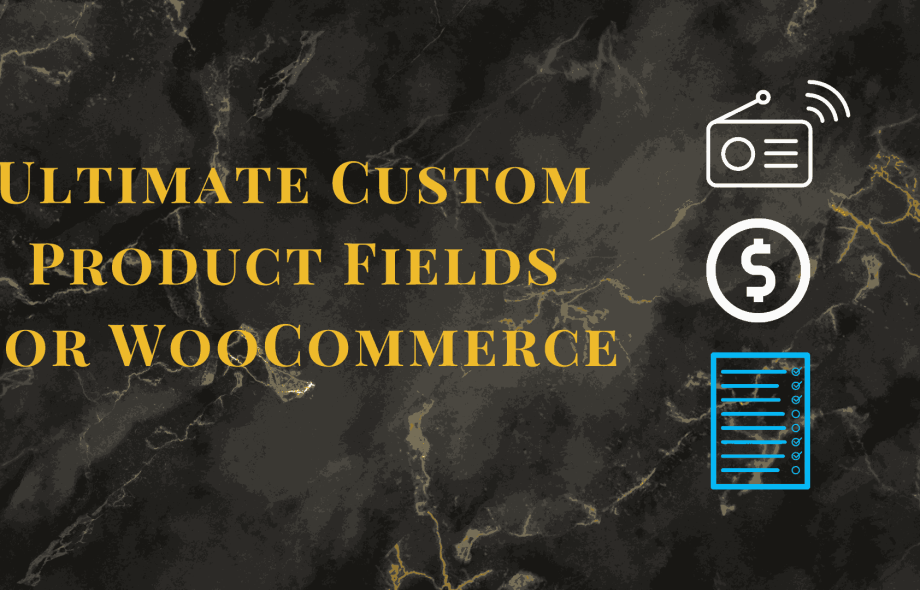In eCommerce, personalization is the key to capturing customers’ attention and loyalty. With product addons for WooCommerce, you can turn ordinary products into customizable masterpieces, catering to your customers’ specific needs. From personalized engravings to premium services, product addons unlock a world of possibilities for enhancing customer satisfaction and increasing revenue.
Let’s explore how product addons can redefine your store’s success, backed by real-life examples and actionable strategies!
Why Are Product Addons Essential for WooCommerce Stores?
Today’s customers expect more than a one-size-fits-all experience. They want products tailored to their preferences. Product addons enable store owners to provide just that, giving customers control over their purchases while boosting store profitability.
Key Benefits of Product Addons
- Increased Sales
Upsell and cross-sell opportunities with premium addons directly improve the average order value. - Better Customer Retention
Shoppers love options. Customizations foster loyalty by making your store feel unique. - Streamlined Inventory Management
Instead of creating multiple variations, addons simplify product management by allowing flexible customization options.
Case Study: How “UrbanWear Co.” Increased Revenue by 40%
UrbanWear Co., an online fashion retailer, implemented product addons for woocommerce to offer personalization for their best-selling t-shirts. Addons included:
- Custom Text Printing ($10)
- Special Fabric Options (like organic cotton, $15)
- Premium Packaging ($5)
Results After 6 Months
- Revenue increased by 40%.
- Customer return rates grew by 25%.
- Feedback surveys revealed customers loved the personalized touch.
This simple implementation helped UrbanWear Co. stand out in a competitive market.
Creative Addon Ideas for Different Niches
Here’s how you can use product addons across industries:
1. Furniture Stores
- Add assembly services.
- Offer different material finishes (e.g., oak, walnut).
- Provide custom dimensions for furniture.
2. Jewelry Shops
- Add engraving options for rings or necklaces.
- Include gift box upgrades.
- Offer diamond quality upgrades.
3. Pet Supplies
- Offer custom pet tags with names or contact details.
- Add premium pet food options.
- Provide custom toy colors.
4. Outdoor Gear Shops
- Allow customers to add monograms to bags or gear.
- Offer water-resistant coatings.
- Add accessories like straps or covers.
5. Art & Craft Stores
- Provide framing options for paintings.
- Offer personalized messages or dedications.
- Add premium materials (e.g., acid-free paper).
Case Study: “BakeEase” Turned Cakes Into Experiences
BakeEase, a bakery specializing in cakes, used WooCommerce product addons to offer customers full control over their orders. Addons included:
- Flavor Selection (multiple layers and unique combinations).
- Message Customization (on cakes for $10).
- Add-Ons like candles and toppers.
Impact:
- Within 3 months, BakeEase reported:
- 25% increase in order frequency.
- 60% boost in average cart value.
- A significant rise in social media mentions, thanks to happy customers sharing personalized cakes.
Steps to Implement Product Addons in Your WooCommerce Store
Here’s how you can start offering product addons:
1. Select a Reliable Plugin
Popular plugins include:
- WooCommerce Product Add-Ons (official plugin for comprehensive features).
- Flexible Product Fields (for more form-based options).
- Extra Product Options by ThemeHigh (ideal for advanced requirements).
2. Install and Configure the Plugin
Install the plugin, activate it, and configure settings based on your product requirements.
3. Add Custom Fields
Set up fields like text boxes, checkboxes, or dropdowns to create addon options.
4. Test the Addons
Ensure all fields work properly before going live.
Tips for Maximizing Revenue with Product Addons
1. Focus on Clarity
Clearly describe each addon and its benefits. Use concise text and visuals to make the options appealing.
2. Offer Free Addons Strategically
Free options, like name customization, can encourage conversions while keeping customers happy.
3. Use Analytics to Refine Addons
Monitor which addons are most popular and adjust offerings accordingly.
4. Provide Real-Time Previews
Let customers see how their choices (like engraving or color changes) will look on the product.
Case Study: “TechBuddy” Thrived with Customization
TechBuddy, an electronics store, introduced product addons for their gaming accessories, including:
- Extended Warranty Options (1 year for $20, 2 years for $35).
- Custom Controller Colors ($15).
- Bundle Deals (extra cables and cases for $25).
The Outcome?
In just 4 months, they reported:
- 50% growth in sales of accessories.
- A significant increase in positive reviews mentioning customization.
Conclusion
Product addons for WooCommerce are not just an extra feature—they’re a strategic tool for improving customer experience and boosting revenue. Whether you’re running a bakery, a fashion store, or a tech shop, the flexibility and personalization they offer can help your business thrive.
Take inspiration from success stories like UrbanWear Co., BakeEase, and TechBuddy, and start leveraging the power of product addons in your store.
Frequently Asked Questions
1. How do product addons differ from product variations in WooCommerce?
Product addons provide extra customization options, while variations handle different versions of the same product (e.g., sizes or colors).
2. Are there any free plugins for product addons?
Yes, some free plugins like Flexible Product Fields Lite offer basic addon features.
3. Can I charge customers for specific addons?
Absolutely. You can set prices for premium options like engraving or extended warranties.
4. Do product addons slow down my site?
Not if you use a well-optimized plugin. Choose plugins with good reviews for performance.
5. Are addons mobile-friendly?
Yes, most modern plugins are responsive, ensuring a seamless experience on all devices.
 :
https://www.pinterest.com/fmeaddons/
:
https://www.pinterest.com/fmeaddons/












